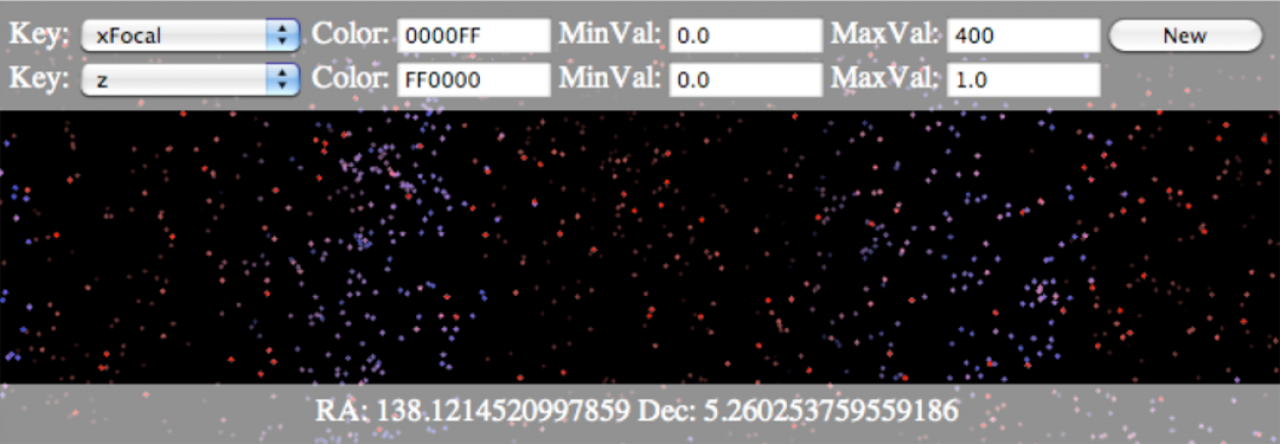|
|
||||||||||||||||||
Pixel-based Overlays for Navigating a Galaxy of Observations
Authors: Luciani, T., Hachey, R., Oliphant, D. Q., Cherinka, B. A., Marai, G. E.
Publication: IEEE Visualization 2011, Large-Scale Data Analysis and Visualization Symposium, Poster Abstracts with System Demonstration, Providence, RI, pp. 1-2 There is an incoming flood of information to the Astronomy community with the development of new telescopes. Over the next decade the amount of information available to the typical astronomer will grow by two orders of magnitude to the Peta scale, thanks to programs such as Pan-STARRS (Panoramic Survey Telescope and Rapid Response System) and LSST (Large Synoptic Survey Telescope). Moreover, astronomy analyses often require pooling information from multiple data sources, such as a number of measurements from different telescopes at different wavelengths of light. However, we lack an easy-to-use and scalable way to analyze anything beyond the most basic data on the thousands to billions of individual events and objects studied. Visually cross-registering astronomy data across multiple sources comes with its own challenges; for example, images may be acquired at different resolutions and may only partially overlap with each other. The analysis process is further hampered by limited screen space and limited bandwidth (upwards of one minute may be required by large Sloan queries). For example, Fig. 2 shows a typical Google Sky visualization of about 60 annotations (of different types) on objects in a small part of the sky. Even at such low numbers, the glyphs used to represent each piece of data quickly fill the screen space and become difficult to sift through. To address the challenges of querying multiple sources, limited screen-space and limited bandwidth, we propose to use a pixel-based overlay approach, computed and implemented through a WebGL client-server architecture; our prototype was developed in close collaboration with astronomy experts. An interactive demo of the prototype is available. Date: October 23, 2011 - October 28, 2011 Document: View PDF |